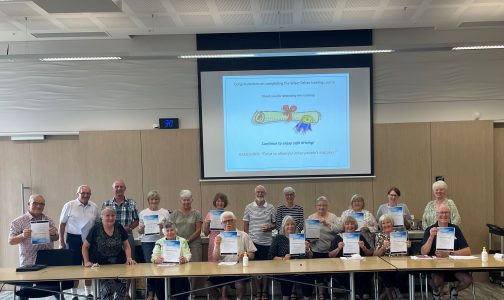Surf Coast Shire Wiser Driver Course



Surf Coast Shire Wiser Driver Courses are face-to-face interactive courses that are conducted for two hours each week over a four week period. They are delivered through a collaboration between Surf Coast Shire Council, ACCESS Health and Community and VicRoads. These courses are targeted to people between the ages of 65 and 90 years and provide up-to-date information on current Victorian Road Rules; opportunities to address any concerns participants might have about driving in a safe and non-threatening space; encourage participants to think about changes in their fitness or health that may impact on their driving and foster an awareness of safer driving habits whilst increasing insight into driver skills and abilities.
The uptake of these courses has been phenomenal. The outcomes are widespread, not only in terms of encouraging safer driving; but in supporting individuals to remain as independent as possible for as long as possible in their communities. The courses enhance social engagement and participation and increase the capacity to create connections and opportunities within the community. Older people can be very fearful of having their driver’s license taken away from them – an important lesson learned has been to effectively communicate the aims of these courses so that these fears are allayed. Also, positive word of mouth experiences from participants is key to success. The Wiser Driver Courses have become a key component of our Age Friendly Strategy and Surf Coast Shire Council has committed to providing ongoing support and resources to ensure the courses are as accessible as possible across all the towns in our community. The Wiser Driver Course is a catalyst for behaviour change and addresses current and future aspects of driver safety.
Website: https://www.surfcoast.vic.gov.au/Community/Over-55s
Main target group: Older people in general
Sector(s): Education, Transportation
Desired outcome for older people:
Be mobile